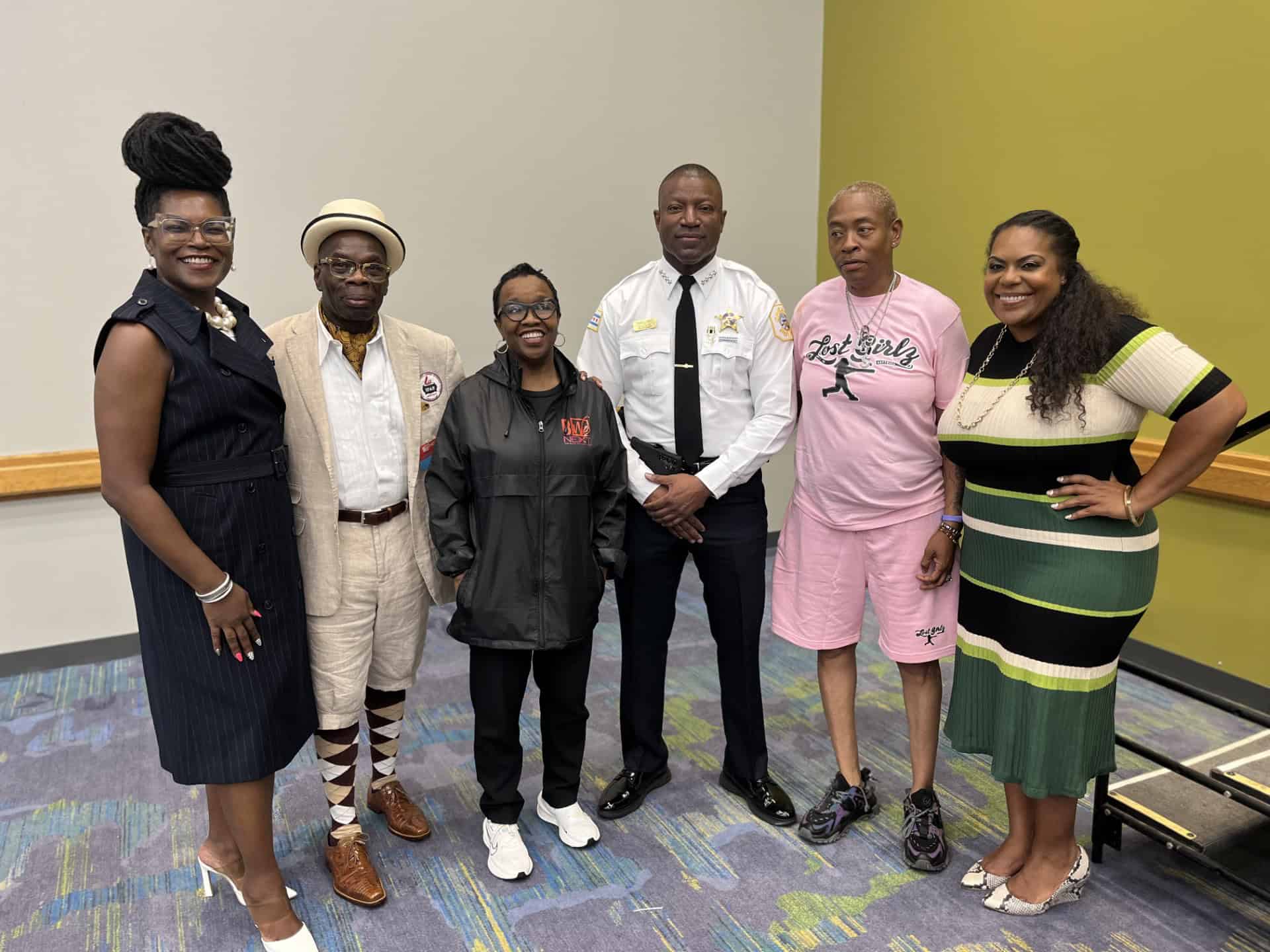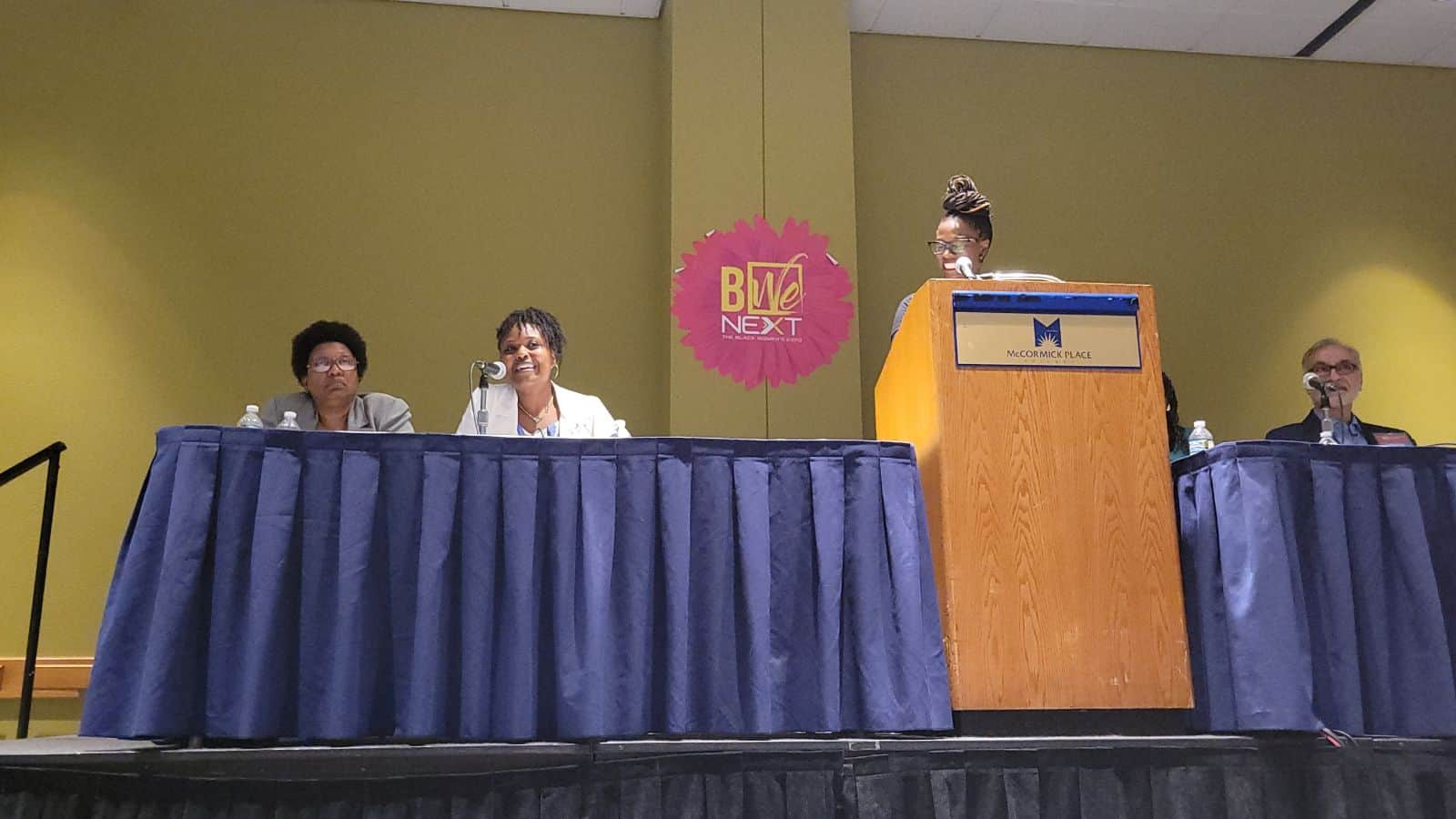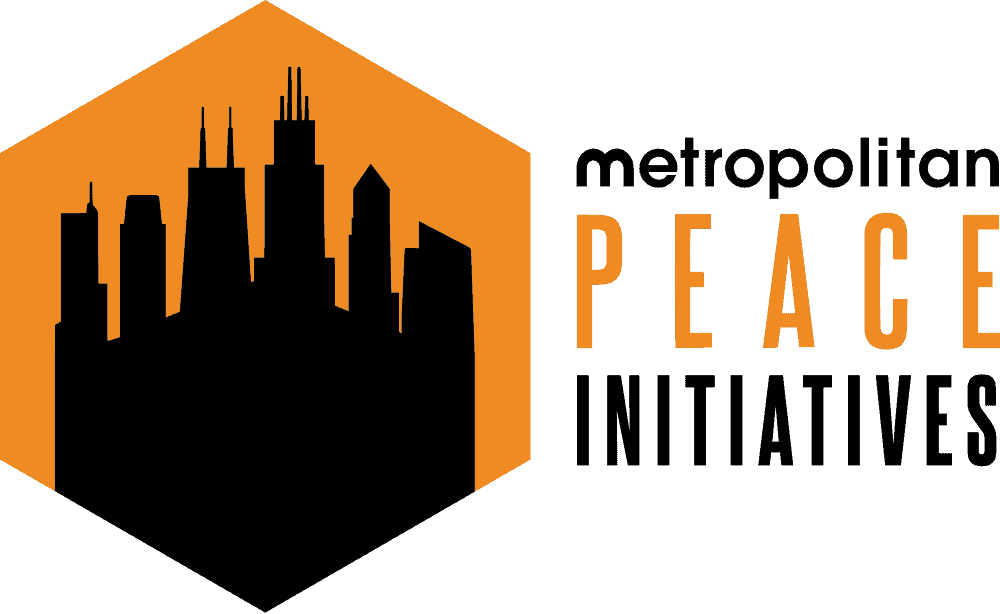Interrupting the Cycle: A Panel Discussion on Community-Driven Strategies to Combat Gun Violence

On August 3, 2024, The Black Women’s Expo held a panel on community violence intervention titled “What’s Going On? Violence Interrupters in the City.” This panel provided an enlightening and essential forum to address the pressing issue of gun violence in Chicago.
Moderated by reporter Evelyn Holmes from ABC7, the event brought together community leaders, including Dr. Vanessa Perry-DeReef, Chief Training Officer of Metropolitan Peace Initiatives; Christa Hamilton, CEO & President of UCAN Chicago; Pha’Tal Perkins, Founder of Think Outside da Block; Coach Smith of Lost Boyz Inc.; Kristen Perteet, Co-Founder of Be the Miracle; Taj Jones, Founder & Executive Director of Totally Positive Productions; Ceanna Metts, Youth Violence Prevention Media Student; Dr. Wallace “Gator” Bradley, Social Justice Director at My Brother’s Keeper Outreach Church; and Larry Snelling, Superintendent of the Chicago Police Department.
The discussion centered on the critical importance of community and youth engagement in combating gun violence. Each speaker brought a unique perspective and set of experiences, highlighting various strategies and initiatives aimed at mitigating violence and preventing future incidents.
Hamilton spoke on the importance of readjusting what an organization does to further help the community it serves.”[UCAN has] reshaped our focus to include parents as well. We recognize that there’s only so much work we can do with a young person without impacting their home, so we have started bringing in funding to help with job placement, career development, secondary education, and vocational training for parents as well. We are looking at strengthening the family model so they will be able to create an ecosystem for their child,” she stated.
Panelists spoke on the role of mentorship and grassroots efforts in diverting youth from violence. They highlighted innovative programs engaging young people creatively and talked about the importance of media in violence prevention. The discussion also stressed the need for collaboration, trust-building, and open communication between law enforcement and community organizations to address the root causes of violence.
Dr. Perry-DeReef added insights on The Metropolitan Peace Academy, a training and development program for violence interrupters directly working in street outreach, and the importance of equipping individuals with the skills needed to make a tangible impact through care that recognizes trauma and understands the path towards recovery. “This is violence spreading across our city,” said Dr. Perry-DeReef. “The public health approach teaches us that violence spreads like a disease. If you don’t interrupt the transmission, it will continue to spread, and that’s what we’re saying to you: we’re trying to interrupt that.”
“We have to think about those images that our babies are seeing and how it’s impacting them,” continued Perry-DeReef. “Their behavior manifests as a result of that. It’s not an excuse; it’s just what it is. One of our pillars of work is the trauma-informed approach. And what the trauma-informed approach teaches us is that no matter who you are, no matter how old, you’ve been impacted by trauma.”
This open dialogue facilitated a deeper understanding of the multifaceted approaches required to combat gun violence. The consensus was clear: reducing violence requires a holistic approach that involves the entire community, with a particular focus on supporting and empowering the next generation.
Director of Clinical Training Tina Cooper spoke on a panel on health titled “Ask the Doctors” on August 4, 2024. The discussion addressed racial barriers in mental healthcare and was moderated by Twyler Jenkins, Founder and President of the I Am That Woman Movement.
The panel aimed to provide attendees with knowledge and tools to enhance mental health, support unique mental health needs, and present a holistic approach to well-being. “One of the unique mental needs that Black people face over other ethnicities or races is healthy coping skills. Knowing how to cope with trauma, anxiety and stress in a way that doesn’t consist of having to drink, smoke, pop pills, or engaging in other risky behavior can increase the preservation of Black life,” stated Cooper.

